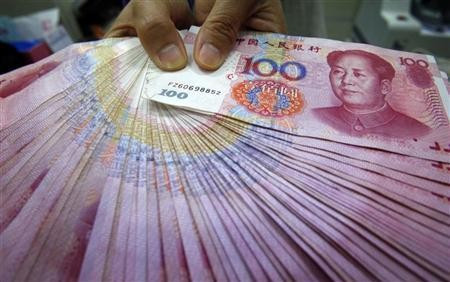Improved China Trade Data Signals Near-Term Growth Rebound

China's trade improved in June, signalling that the country is on track for a growth rebound after a slow down.
Exports for the month rose 7.2%, compared to May's growth of 7%, suggesting that external demand continues to improve. Analysts expected a 10.4% growth in exports for the month.
Meanwhile, imports rebounded with a 5.5% growth in June, following a 1.6% decline in May, reflecting that the effects of commodity financing crackdown have gradually faded.
Commodity prices led by copper rebounded significantly in the past few weeks, suggesting that the domestic demand has been improving. In the past month, China has started 14 new railways with a length of more than 300km in the central and western regions, in line with the government's plan to increase fiscal spending to spur growth.
The country posted a trade surplus of $31.6bn (£18.4bn, €23.2bn) for the month, compared to $35.9bn in the previous month and analysts' projections of $36.9bn.
The improved trade figures are expected to have resulted from the country's mini stimulus and suggest that the country's economic growth will pick up in the second quarter, reversing course from the recent slowdown.
"Improving trade figures, plus the encouraging PMI data, point out that China's growth will likely pick up somewhat in the second quarter due to the targeted 'mini stimulus' measures," said Hao Zhou, economist at ANZ Bank.
"It is worth noting that China's trade growth has become more reflective of the real demand since May, as fake trade activities have been cracked down," Zhou said.
He added that China will achieve 7.5% growth in the second quarter.
ANZ Bank noted that the country's high trade deficit continues to add appreciation pressures on the yuan in the foreseeable future.
"Large trade surplus amid the Sino-US Strategic and Economic Dialogue has again put the RMB in the spotlight, facilitating renewed appreciation," Zhou said.
The country will continue with its intervention in the yuan given the weakness of the economy and abnormal capital inflows, according to Chinese Finance Minister Lou Jiwei.
"Under the current situation, when the economy hasn't recovered fully and when cross-border capital flows are not completely normal, we'll continue," he said at a press briefing on the China-US Strategic and Economic Dialogue.
© Copyright IBTimes 2025. All rights reserved.






















